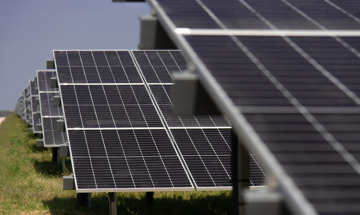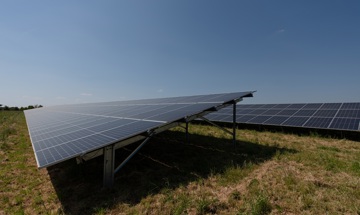Households up and down the country are understandably worried about the prospect of big increases in their energy bills from April.
Customers could very well see Ofgem agree a £700 a year increase in the Energy Price Cap, possibly followed by another £200 in October.
Energy suppliers have to pass on higher wholesale costs to survive. But at British Gas we are working hard with Government to find a way to protect families from the full force of the price hikes.
This doesn’t mean that we are looking for a Government bailout. There are reports that some energy companies want a £20 billion hand out to keep household bills down. Not British Gas. We haven’t asked for a bailout, we don’t want a bailout and we oppose any bail outs.
Our advice to Government is to try to help those customers who are already struggling to make ends meet, not to worry about helping energy companies’ balance sheets.
"We have to think about protecting customers now – and into the future. They must be the priority."
Ultimately any decision has to be taken by Ministers – and there are a range of options which can be temporary or permanent.
Suspending VAT on energy bills could shave £100 off the typical bill.
A more targeted option would be to support those who need help the most by making a contribution to their energy bill through a scheme administered by the Department of Work and Pensions.
Another way forward would be to strip environmental and social levies out of energy bills and funding ‘green’ programmes through general taxation instead. Overnight this would reduce annual bills by £170.
It would also be fairer. Funding environmental costs through the bill means every customer pays the same amount, regardless of how rich or poor they are.
Whatever the Government decides, we have to use this moment to look longer-term to try and ensure the industry isn’t in this position again.
As a responsible supplier we have worked hard to ‘hedge’, to buy gas and electricity in advance to protect our customers from the steepest increases. Everything we do is to reduce the cost for our customers as much as we can.
We have to think about protecting customers now – and into the future. They must be the priority.

Case Study
Secure, Sustainable and Affordable: 2025 Policy Positions
Sustainability

Case Study
In conversation with... Jessica Taplin
Energy crisis

Case Study
Getting Technical: Why market reforms should span both the downstream and upstream electricity market
Customers and Communities

Blog
Chris O'Shea - Changes are needed to make the energy sector simpler and more transparent
Energy crisis

Blog
Chris O'Shea: we will give 10% of British Gas Energy profits away to help our customers
Energy crisis

Blog
How the energy crisis could help businesses prepare for the future
Energy crisis
